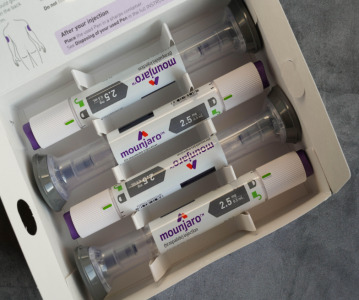European Medicines Agency enhances cooperation with EU drug-monitoring agency on psychoactive and abused medicines
The exchange of information on new psychoactive substances and abused medicines has been enhanced today, thanks to an amended working arrangement signed in Lisbon by the directors of the European Medicines Agency (EMA) and the European Monitoring Centre for Drugs and Drug Addiction (EMCDDA).
The exchange of information on new psychoactive substances and abused medicines has been enhanced today, thanks to an amended working arrangement signed in Lisbon by the directors of the European Medicines Agency (EMA) and the European Monitoring Centre for Drugs and Drug Addiction (EMCDDA).
Today's update to the arrangement, which was first signed in 2010, reflects the new pharmacovigilance legislation, which states that the EMA and the EMCDDA ‘shall exchange information that they receive on the abuse of medicinal products including information related to illicit drugs’.
The EMA will now inform the EMCDDA of any validated signals of suspected side effects of medicines that are related to drug abuse. A signal is information on a new or known adverse event that is potentially caused by a medicine and that warrants further investigation. A signal is validated once the data have been reviewed and enough evidence found to justify further analysis.
Today's arrangement strengthens the agencies’ information-exchange practices and will help them respond in a more timely manner to potential public-health threats.
The EMCDDA is a European Union (EU) agency that exists to provide the EU and its Member States with a factual overview of European drug problems and a solid evidence base to support the drugs debate. The EMA and the EMCDDA have worked closely together since 1997, when they began exchanging information on and assessing the risks of new synthetic drugs in Europe.
Other features of today's arrangement include the exchange of expertise via consultations, projects and meetings and the possibility for the EMA to consult the EMCDDA when defining risk-management plans for selected medicines.
Related News
-
News The next 15 drugs up for negotiation with Medicare include several blockbusters
By now, everyone is quite familiar with the drug price negotiations taking place between drug companies and the Centres for Medicare & Medicaid Services (CMS) in the USA as part of measures being taken to reduce the cost of drugs for patients, to make ... -
News PSCI Welcomes Delpharm, Samsung Biologics, and Suven as First Supplier Partners
The pharmaceutical industry continues to evolve with an increasing focus on responsible sourcing, sustainability, and collaboration across the supply chain. Under a new model to recognise suppliers within the pharmaceutical and healthcare industry that... -
News Drug prices agreed upon as part of the US Inflation Reduction Act
The Inflation Reduction Act brought into constitution by the Biden administation in 2022, which proposed a drug price negotiation between the government and pharmaceutical companies, has reached it's first agreement. -
News Eisai Alzheimer’s drug authorised in UK but still faces obstacles
In partnership with BioArctic AB, pharmaceutical company Eisai has been granted Marketing Authorisation by the Medicines and Healthcare products Regulatory Agency (MHRA) for its Alzheimer’s disease drug product Leqembi. -
News Eli Lilly's weight loss drugs removed from the FDA's shortage list
The US FDA have recently updated their drug shortage list. The recently released list shows that all dosage forms of Eli Lilly's weight-loss drug Zepbound and their diabetes drug Mounjaro are now available. -
News Global advancements in the diagnosis and treatment of rare diseases: Rare Disease Day 2024
Rare Diseases Day is celebrated on the 29th February 2024 and represents the plight of rare disease patients to gain diagnosis and access to suitable treatment. -
News Pharmaceutical industry supports COP28 health stance in joint statement
As COP28 takes place over this week in Dubai, UAE, several bodies in the pharmaceutical and health industries have come together to announce support of key movements in sustainability in the sector, and to recognise sustainability as a health issue.&nb... -
News Biden backs Cold-War measures to shore-up medical supply chains
In a recent strategy to combat rising inflation and the cost of living crisis, President Joe Biden has invoked a Cold War-era act to increase investment in a selection of medicines and supplies.
Recently Visited
Position your company at the heart of the global Pharma industry with a CPHI Online membership
-
Your products and solutions visible to thousands of visitors within the largest Pharma marketplace
-
Generate high-quality, engaged leads for your business, all year round
-
Promote your business as the industry’s thought-leader by hosting your reports, brochures and videos within your profile
-
Your company’s profile boosted at all participating CPHI events
-
An easy-to-use platform with a detailed dashboard showing your leads and performance



.png)



